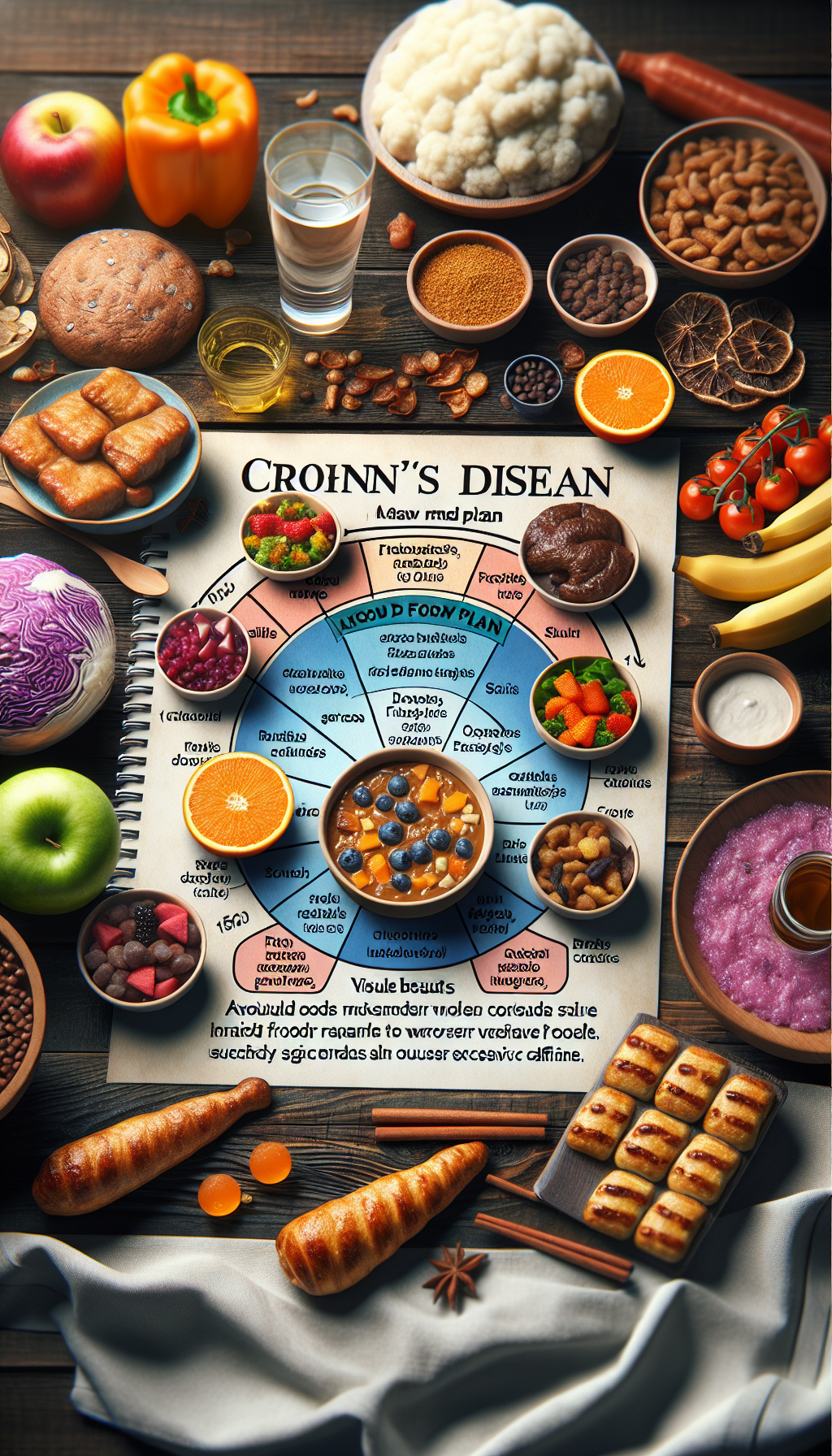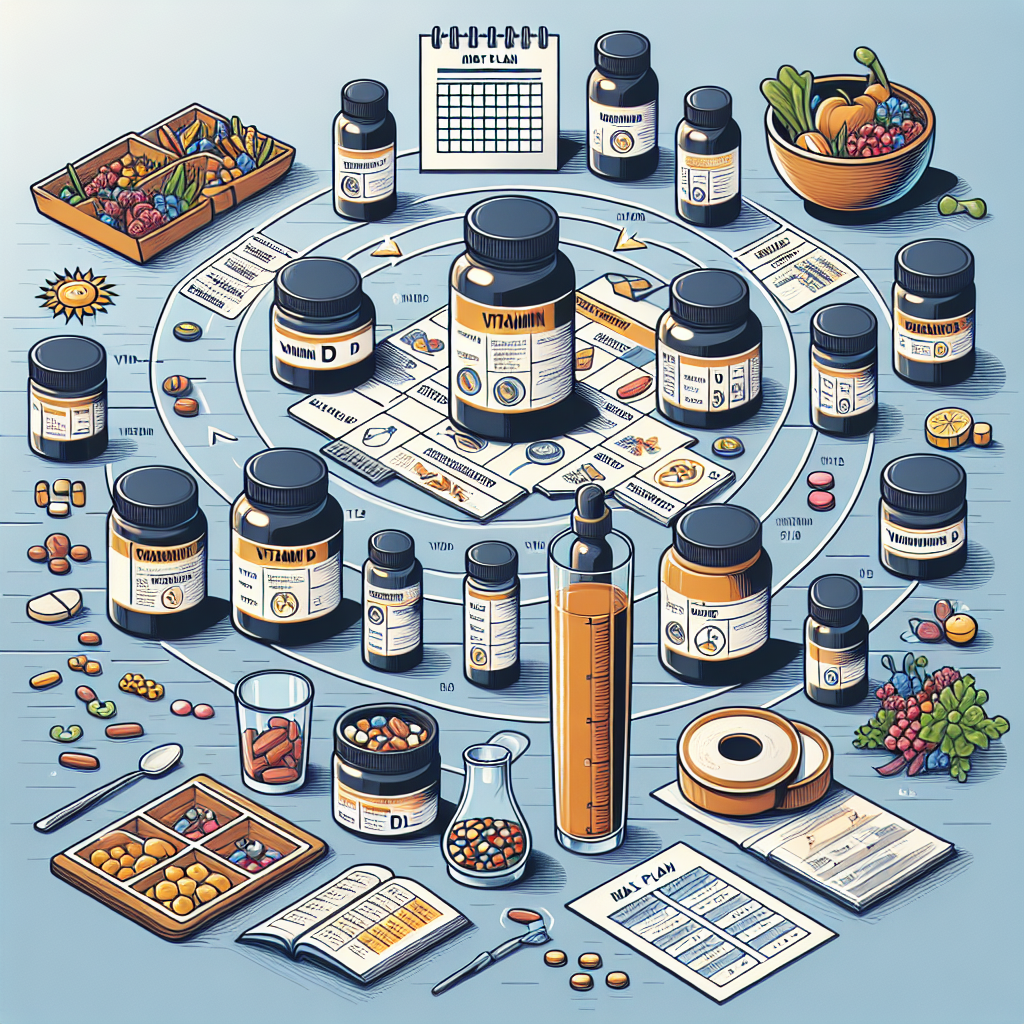Crohn’s disease, a type of inflammatory bowel disease (IBD), can be a complex condition to manage due to its chronic nature and the variety of symptoms it presents. Diet plays a significant role in the management of Crohn’s disease, not only in alleviating symptoms but also in ensuring overall digestive health. This article delves into how dietary choices can impact Crohn’s disease, offering guidance on how to navigate nutrition for better management of the condition.
The Impact of Diet on Crohn’s Disease
The connection between diet and Crohn’s disease is well-established, with certain foods known to exacerbate symptoms such as abdominal pain, diarrhea, and fatigue. While there is no one-size-fits-all diet for Crohn’s disease, understanding the principles of a gut-friendly diet can empower individuals to make choices that reduce inflammation and promote intestinal healing.
Identifying Trigger Foods
One of the first steps in managing Crohn’s disease through diet is identifying and avoiding trigger foods. These are foods that can increase intestinal inflammation or lead to a flare-up of symptoms. Common triggers include high-fiber foods, dairy products, spicy foods, and fatty foods. By keeping a food diary and working with a healthcare provider or dietitian, individuals can pinpoint which foods to limit or avoid.
Nutrient-Rich Diet for Healing
A nutrient-rich diet is essential for those with Crohn’s disease. Due to the malabsorption issues often associated with IBD, patients need a diet that can help replenish essential nutrients. Foods rich in omega-3 fatty acids, such as salmon and flaxseeds, have anti-inflammatory properties. Iron-rich foods are also important to combat the anemia that can result from chronic intestinal bleeding.
The Role of Fiber
Fiber is a double-edged sword in Crohn’s disease management. While it is crucial for overall gut health, it can sometimes worsen symptoms in Crohn’s patients. Soluble fiber, found in foods like oatmeal, apples, and carrots, may be tolerated better and can help in managing diarrhea by absorbing water in the gut. However, during flare-ups, a low residue or low fiber diet may be recommended to reduce bowel movements and ease symptoms.
Hydration and Crohn’s Disease
Hydration is another key aspect of managing Crohn’s disease. Diarrhea and intestinal inflammation can lead to dehydration, making it crucial for patients to drink plenty of fluids. Water is the best choice, but certain herbal teas may also be soothing and beneficial.
Tailoring the Diet to Individual Needs
Every individual with Crohn’s disease may react differently to various foods. It’s important to tailor the diet to one’s specific needs, which may change over time or during different phases of the disease. Consulting with a dietitian who specializes in Crohn’s disease can result in a personalized eating plan that takes into account the patient’s preferences, nutritional requirements, and lifestyle.
Importance of Professional Guidance
Working with healthcare professionals is essential in managing Crohn’s disease through diet. They can help design a nutritional plan that minimizes flare-ups, addresses nutritional deficiencies, and supports overall health. Resources like the Crohn’s & Colitis Foundation offer guidance on nutrition for those with IBD, providing a valuable starting point for understanding the role of diet in disease management.
Supplementation
Due to malabsorption, supplementation may be necessary to ensure adequate intake of certain vitamins and minerals. For instance, vitamin B12, iron, calcium, and vitamin D are often needed in higher amounts for individuals with Crohn’s disease. It’s important to discuss supplementation with a healthcare provider to avoid potential interactions with medications and to ensure dosages are appropriate.
Additional Resources and Support
Aside from dietary management, it’s important for individuals with Crohn’s disease to have access to support and information. Organizations such as the International Foundation for Gastrointestinal Disorders provide resources and community support for those living with chronic gastrointestinal conditions.
For those interested in exploring how specific dietary approaches can impact Crohn’s disease, the Specific Carbohydrate Diet has been discussed within the community as a potential way to reduce symptoms by eliminating complex carbohydrates.
Moreover, understanding the interaction between diet and gut microbiota is crucial. Research on the gut microbiome offers insights into how diet can influence gut health, which is especially pertinent for those with Crohn’s disease.
Conclusion
Diet plays a pivotal role in managing Crohn’s disease and maintaining digestive wellness. While individual dietary needs will vary, the overarching goal is to find a balance that reduces symptoms, corrects nutritional deficiencies, and supports overall health. By working with healthcare professionals, individuals with Crohn’s disease can develop a dietary approach that helps manage their condition effectively. Remember that alongside diet, other aspects of health, such as medication and supplements, are also important to consider for comprehensive management of Crohn’s disease.
For more information on related topics, you might find these articles helpful:
- Probiotics and Prebiotics: Nourishing a Healthy Gut Microbiome
- Strategies for Managing IBS and Promoting Digestive Health
- The Importance of Enzymatic Therapy in Digestive Wellness
Managing Crohn’s disease is a journey, and dietary choices are a significant part of that journey. With the right information, support, and healthcare guidance, individuals can take control of their diet and, by extension, their Crohn’s disease, leading to a better quality of life.



